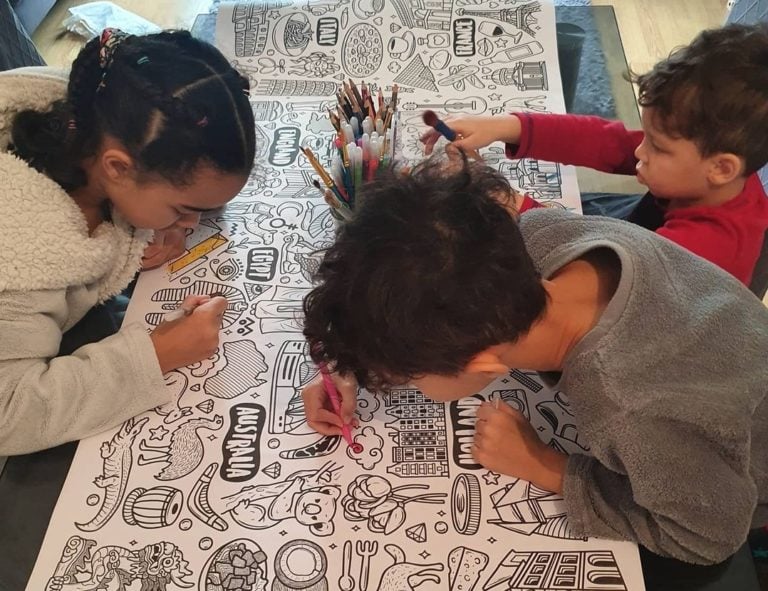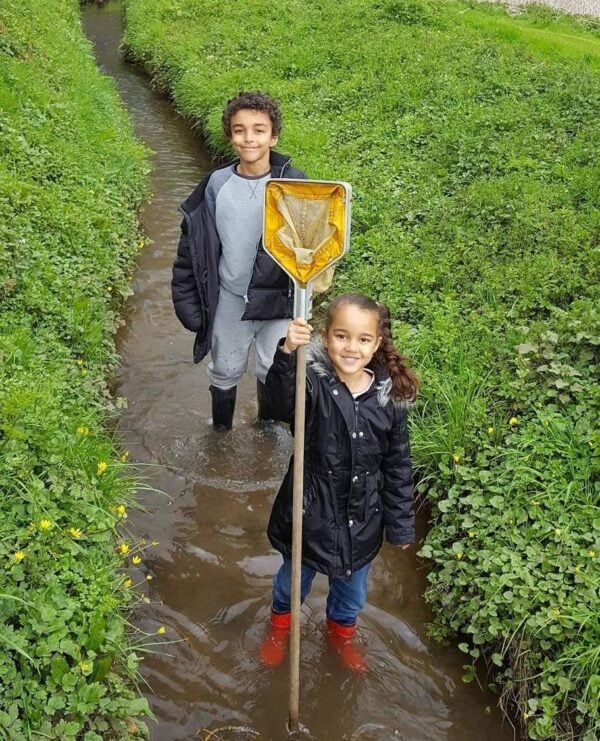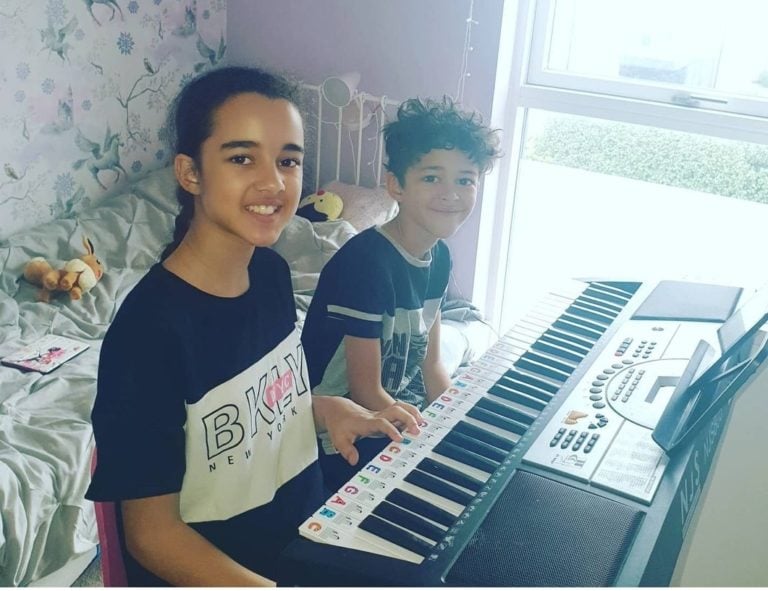
Like many when having children, I imagined them heading off to school one day. I thought that was what we all did. What had to be done. The path all children took!
Would you be surprised if I told you that isn’t the case at all? I know that many have now heard about home-schooling because of lockdown, but that is different to the home education I have grown to love over the last six years.
What is home education?
Legally, children have to be in some form of education after the term they turn five years old, but that doesn’t have to mean school. Educating at home is a legal option and sometimes an option better suited to the family for many reasons.
As a home educating mum of four children, I am going to share some of the top tips that have helped me over the years. First though, let me share a little more about my family and how we started on our journey.


How our home ed journey began
My eldest two children went off to school and we got into the rhythm of school runs, events, homework, and so on. We were happy with that until my eldest son Jayden moved up to the junior school in year three. He didn’t seem as happy as he used to be and I was struggling with some of what he was being taught. I didn’t think it was always age appropriate or even necessary. I felt that it was becoming quite a negative environment for my children and I was beginning to dislike the system.
Now, please don’t think I am here to bash school. I am not. It has its place, works for many and my eldest has recently made the decision to go back to school, which has been great for him. However, I prefer the freedom that we have with home education, so continue that with my youngest three children.
I also think it is really important that parents know the option is there for them. We should be informed in any decision we make and that starts with first knowing the variety of options we have available to us.
The process of starting our home ed journey was different for my youngest two children. As Jayden and Kyla were already enrolled in a mainstream school I had to de-register them. That is simply writing to or emailing the school, stating that you will be home educating them from the date of your choosing (this could be effective immediately). If you hand a letter in, make sure you get a receipt from whoever you are handing it to. If you are posting it, do it as recorded delivery so that you have proof you have informed the necessary people. This is because it is your legal obligation in the process of removing your child from the register. It is then the school’s legal responsibility to inform the local authority that your child is no longer at the school. You do not need permission and you do not need to discuss the matter with the school if you do not want to.
For my third child, I had applied for his school space just in case and then when he was offered a space, I declined it and told them I would be home educating him instead. Then finally for my youngest son I just haven’t applied for a school place for him. I don’t need to inform anyone of my decision, but as we are already known to the local authority as home educating, I will inform them the next time I speak to them after he turns five. Many parents who decide to home educate from the start can do so without any involvement from the local authority. You don’t need to notify them at all.
My top home ed tips
Now you have an idea of how we got started, I promised to share some tips with you that have helped me over the years, so here they are.


Find your community
It’s easier than you’d think! When I first started researching home ed, I likened the community to a secret underworld. A world you have no idea
of until you start looking. There are lots of Facebook pages, if you search ‘home education (insert location)’ you will be sure to find at least one for your area. From there, you can find out activities, workshops, meet ups, and more that you can join.
Do your research
Research styles of home education. No two families are the same. We all have different interests, learning styles and dynamics so finding a style of home education that works for you is important. Also, don’t be afraid to try them all out if you want to. I’ve changed styles many times over the years depending on many things such as the season, having a newborn and just needing to shake things up to reignite our motivation.
Throw out the rulebook
Throw out everything you’ve been taught about how children should learn. As adults who have been through the schooling system, it can be really hard to shake how we think children should learn and monitor their success. I encourage you to look for the learning opportunity in everything that they do. It is often when they are being creative and using their imagination that they learn amazing things. They are naturally inquisitive beings, let them explore.
You know best
People may think you are crazy and share their opinions without any knowledge or facts to base them on. You know what is best for your family and should do what feels right for you all.
Bargain hunt
Look out for discounts. We do not get any funding so ask for home educator rates and do group bookings with other home educators to places where there aren’t discounts available. Places like trampoline parks, tourist attractions, farms, etc. will all be better booked as a group. Some places ask for a home educators card or some other proof of home education, however that isn’t a thing we are issued with or a requirement from the local authority, so you can decline.
Know your rights
Know your rights and obligations as a home educator. People assume you will be monitored by the authorities and that you have to show work, stage of development, assessments, etc. but you do not have to do these things. You have complete freedom to educate your children in the way you would like to. Education Otherwise is a great resource to learn more.
Give yourself credit
Don’t beat yourself up. There are days that you are going to wonder why you decided to do this. Some days are so hard you’re tempted to enrol them into school. The responsibility can weigh heavy because it all falls on you, with no school or teachers to fall back on.
Then come the days where you are reminded why you chose this path and those days far outweigh the bad days. Seeing them master something they have been practicing, or the joy they get from an experience is so rewarding.
Be flexible
Children don’t need to be sat at a table 9am-3pm. In fact, what a child learns in a six-hour school day, home educated children can work through in two hours. When you take into consideration the ratio of adult to child, no assemblies, no moving from class to class, and fewer distractions you can understand why. This means that you can shape your day differently, even working evenings and weekends if that fits in better. This is great if parents are working during the week. Some families choose to be seasonal, so in the winter they do more written work and in the warmer months they get out in nature and explore.
Home education is totally flexible – make it work for your family.
Making a big decision like this can feel very overwhelming, but hopefully with these tips you feel like you have some tools to get started. I’ve found other home educating families to be my biggest support in navigating my way as they have always been happy to share their knowledge and experiences. You will never be on your own once you have found your community!
About the author

Emma Theophil
Franchise owner and instructor for Basking Babies Hornchurch.
